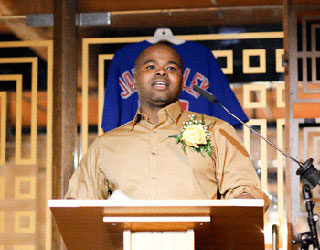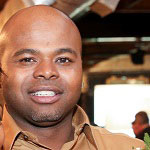
Charles Johnson
On February 15, 2017, the Cook County State’s Attorney’s Office dropped all charges against Center on Wrongful Convictions client Charles Johnson and three other men (Larod Styles, LaShawn Ezell, and Troshawn McCoy), who were only teenagers when they confessed to a 1995 double murder. The State sought the death penalty after Charles’s conviction, and while a jury spared his life, he received a sentence of life without parole.
Charles’s legal nightmare began on the evening of December 4, 1995, when two men examined several cars at two neighboring used car lots on the southwest side of Chicago. Twenty minutes later, the same two men returned to one of the lots, entered the office, and fatally shot the two owners. The perpetrators escaped in two cars stolen from the lot, followed by a third car containing two co-conspirators who acted as lookouts. Six hours later, the stolen cars were found, abandoned, five miles from the crime scene. Police recovered marketing stickers that were on the front window shields of the cars when they were on the lot, but had been removed.
Based on an anonymous tip, one of the codefendants was picked up and pressured into confessing; he in turn implicated the other codefendants, including Charles. The confessions caught the attention of the CWC’s then-legal director Steve Drizin, a nationally renowned false confession scholar, who agreed to take on Charles’s case in 2008.
The CWC, partnering with attorneys from Kirkland & Ellis, moved for forensic testing of more than two dozen unmatched finger and palm prints lifted from the cars the killers had touched on the lot, the recovered stolen cars, and the marketing stickers that had been peeled off the stolen cars. The results were stunning. Not only did the new testing exclude Johnson and all of the codefendants, but multiple finger and palm prints pointed to a teenager with a criminal record who lived less than one block from where the perpetrators abandoned the cars.
In 2011, based on the new fingerprint results, Charles’s legal team, which had grown to include the Exoneration Project and Riley Safer Holmes & Cancila, moved for a new trial. Through persistent litigation and advocacy, Charles’s case slowly inched closer to justice: an evidentiary hearing was ordered, a new trial was agreed upon, and in the fall of 2016, Charles was released on bond. Finally, in February of 2017, Cook County State’s Attorney Kim Foxx’s office agreed to drop all charges.

